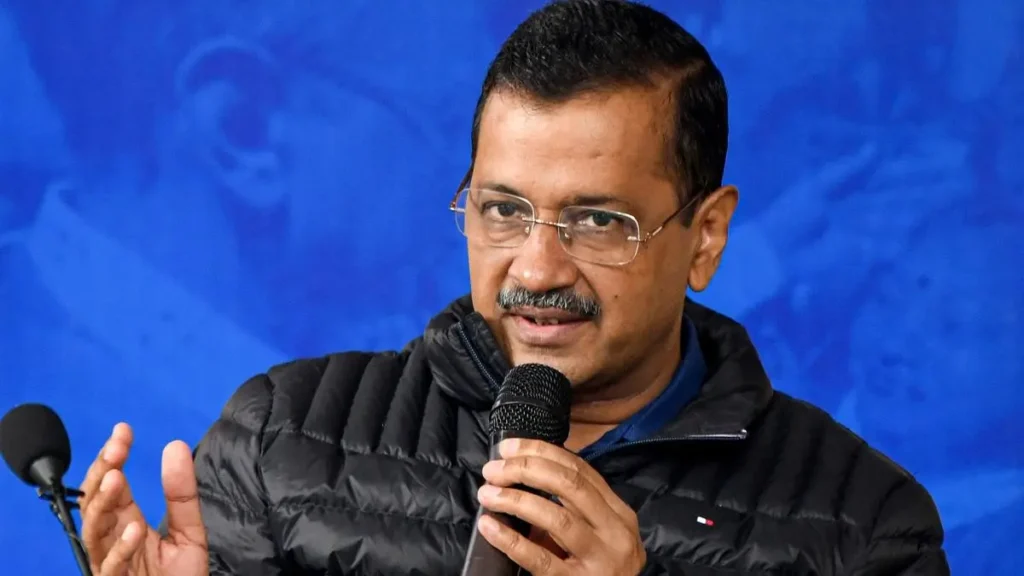The Bharatiya Janata Party (BJP) has fired a sharp broadside at Aam Aadmi Party (AAP) convenor Arvind Kejriwal for allegedly disparaging the Purvanchali community, referring to residents of Delhi who belong to eastern Uttar Pradesh and Bihar. The controversy is linked to remarks Kejriwal made against “fake voters” from Uttar Pradesh and Bihar in the New Delhi Assembly constituency, where an election will soon be held.
At a press conference on Thursday, BJP MP Manoj Tiwari slammed Kejriwal for what he called a history of scornful remarks against the Purvanchali community. “Arvind Kejriwal and AAP have a history of disrespecting the people from UP, Bihar, and Jharkhand. How did you dare to call people from these states as fake? ” Tiwari was quoted by ANI. He further said, “The promises of Arvind Kejriwal and AAP are fake.
The people of Purvanchal will take revenge on February 5th.”
Purvanchali: An Important Voting Group
Purvanchali ‘s are an essential part of the electorate in Delhi. For decades, people from the eastern Uttar Pradesh and Bihar had been settling in the capital, greatly contributing to the socio-economic growth of the place. This influence of the community in elections had increased over time, making it a vital constituent for any party that wishes to win in Delhi.
BJP leader Delhi also reacted to this issue by questioning Kejriwal’s hostility towards the residents of UP and Bihar. “Arvind Kejriwal has been continuously insulting the people of Purvanchal. He is filled with hatred towards them,” Sachdeva stated. He further said, “Today, Kejriwal called the people of Purvanchal ‘fake voters.’ The people of UP and Bihar have played a major role in the development of the national capital.
They will take revenge for this insult by voting against him.”
What Did Kejriwal Say?
The controversy arises from Kejriwal’s comments after he and Delhi Chief Minister Atishi met the Election Commission on Thursday. Speaking to reporters, the AAP convenor raised objections over alleged discrepancies in the voter list for the New Delhi Assembly constituency.
“Our main issues were that 5,500 votes are ready to be removed in the New Delhi Assembly constituency between December 15 and January 7. The total number of votes in this constituency is 1 lakh, and 5.5 percent have been listed to be removed in just 22 days. Obviously, there is some wrongdoing,” Kejriwal stated, quoted by PTI.
He added, “All those, on whose names applications were filed to remove their votes, denied that they ever filed such applications. This means there is a big fraud going on. We also told the Election Commission that between December 15 and January 8, applications for 13,000 new votes have been filed in New Delhi. Obviously, they are bringing people from UP and Bihar to create fake votes.”
BJP Counterattack for Purvanchali
The BJP has seized upon these comments, accusing Kejriwal of branding Purvanchali voters as “fake” and disrespecting their contributions to Delhi’s growth. Manoj Tiwari’s fiery remarks reflected the BJP’s strategy of consolidating support among Purvanchali voters, a tactic they have successfully employed in previous elections.
The people of UP and Bihar have a big role in the development of the national capital,” Tiwari emphasized. “Kejriwal’s statements are not only an insult to these communities but also a betrayal of their trust. The people of Purvanchal will respond to this insult at the ballot box.”
The Context of the Delhi Elections
The Delhi Assembly election, which is scheduled to take place on December 5, will be a highly competitive contest between AAP and BJP. Since the AAP government took office in Delhi in 2015, the BJP has been keen on widening its reach in the national capital. Counting of votes is scheduled on February 8.
The Purvanchali voters pose a particularly vital issue in this election, because their votes would decide the outcome of several constituencies. Both the parties have tried to woo their votes, as BJP has presented leaders like Manoj Tiwari, who belongs to Bihar too, to extend their reach better.
The Bigger Picture
Kejriwal’s comments and the subsequent backlash highlight the sensitivity surrounding voter identity and regional representation in Delhi’s politics. The BJP’s swift response indicates their intent to capitalize on the controversy, portraying AAP as a party that disrespects a vital segment of Delhi’s population.
In a response, AAP has justified Kejriwal’s statement saying it is an issue of voter fraud. “Questioning anomalies in the voters’ list does not target any particular community. It is an issue of fair and free polls,” said an AAP spokesperson. The party claimed that the BJP was politicizing Kejriwal’s statements.
Voter Sentiment: The Deciding Factor
As the election date approaches, the real impact of this controversy will depend on how voters perceive the issue. For Purvanchalis, who have long been integral to Delhi’s workforce and culture, the narrative of respect and recognition could play a pivotal role in shaping their preferences.
The BJP looks at that hard because it wants to consolidate this subgroup, while AAP will need to work hard to mend their image in the eyes of these voters. Both parties will go full throttle to mobilize them in Purvanchali-dominated constituencies and that is going to be the main battleground in the run-up to the elections.
Conclusion The accusations of the BJP against Arvind Kejriwal have made the Delhi Assembly elections a bit more complex. While AAP is still focusing on governance and electoral reforms, the BJP has cleverly shifted the narrative to issues of identity and respect for Purvanchali voters. The response of this significant voter base will prove decisive in determining the outcome of the election as the political battle intensifies. Whether this controversy sways public opinion or reinforces existing loyalties remains to be seen, but one thing is clear: the Purvanchali community’s role in Delhi’s politics has never been more crucial.

